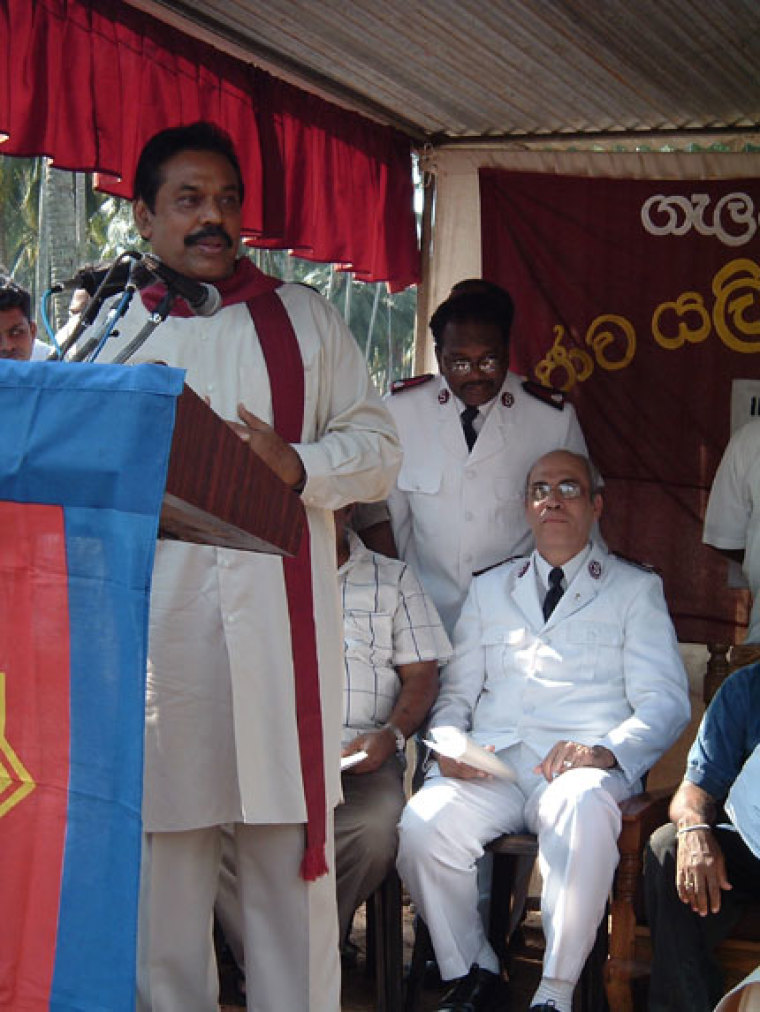
Worldwide aid agencies have declared the second stage of action - recovery and rehabilitation - more than one month after the catastrophic tsunami in the Indian Ocean. In many tsunami hit countries, survivors are beginning to rebuild their houses with the support of aid agencies. In Sri Lanka, a major housing project for tsunami victims was officially launched on Wednesday by the Salvation Army in partnership with the Sri Lankan government.
Over the next six to nine months 1,000 families will relocate to newly-built homes at Galagoda Wattha on what is currently a plantation. Final negotiations with the government are now almost complete and construction work, in partnership with the affected families, will start soon.
On the Foundation Stone Laid Ceremony on 9th February, the Prime Minster of Sri Lanka, the Hon Davinda Rajapakshe, spoke positively about his government's partnership with The Salvation Army. More than 500 people, including Salvationists, government officials and displaced people of the tsunami, attended the ceremony.
While Sri Lanka is a predominately Buddhist country, Rajapakshe reminded the audience that among the tsunami victims, there are people of all faiths - Buddhists, Hindus, Muslims and Christians. He highly appreciated the opportunity that the Sri Lankan government can work with the Salvation Army - a Christian organisation - to rebuild the country.
Even though he admitted that it may still be difficult to get people of all faiths to accept other religions, he encouraged all people to unite together and open their hearts to receive what the Salvation Army has to offer.
Colonel Roy Frans, leader of The Salvation Army in Sri Lanka was very grateful to the prime minister’s speech amid the widespread rumours saying that Christian humanitarian agencies have religious motive when they deliver aid to tsunami victims.
He said, "It was that it helped convince people that the Salvation Army is not an organisation that will unethically attempt to convert them to Christianity by providing them with a house. We don’t want to inhibit other religions freely practising their faith. We hope to show that The Salvation Army cares for all people and will work hard to meet all practical needs."
Captain Ted Horwood, leader of The Salvation Army's International Emergency Services team which is working in Sri Lanka, concludes, "This event is another demonstration of God's grace. We have once again seen his hand through our service to the people of Sri Lanka."